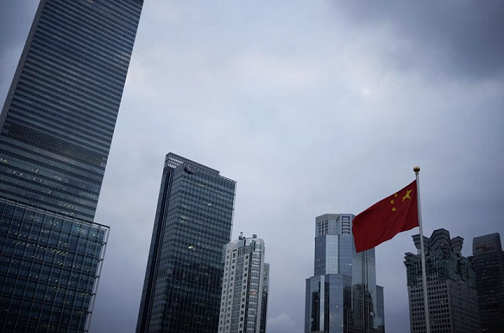 |
| China's Economy - A perspective that is still not stable, unable to 'carry the team' for the whole world . (Source: Reuters) |
Entering 2023, when the global economy is in dire straits in many places, the world puts all its faith in the strong comeback of the Chinese economy after the "frozen" period due to the Covid-19 pandemic.
“A ray of light in a gloomy sky”
World economists and investors are trying to "cheer" Beijing to end its Zero Covid policy soon, with the expectation that after many years of closure and suppressed output, the Chinese economy will surely boom soon after.
The long-awaited moment has finally arrived, on January 8, 2023, Beijing officially announced the opening after 3 years of implementing a "tight" policy to prevent the Covid-19 epidemic. This is great news for the whole world - everyone will benefit from the world's second largest economy coming back strong.
But six months on, Wall Street’s anticipation has worn thin. China’s economic recovery from the pandemic has not been as robust as hoped. Industrial production has disappointed; trade — both imports and exports — has slowed markedly.
Debt is everywhere, especially in the real estate sector, which accounts for 30% of the world’s second-largest economy. Global trading partners are uneasy, for a variety of reasons, and are concerned about the government ’s growing role in the country’s commerce. The private sector, which was expected to drive much of China’s economic recovery, has yet to wake up.
Observers say the failed reopening is not just a short-term disappointment, it is also a sign that the once-robust boom in China's economy has disappeared.
The mechanisms that fueled the “Chinese miracle” in a three-decade transformation and turned the economy into a powerful international force are no longer in place.
China’s property bubble has finally burst. And because of the central role real estate plays in the economy, the “painful process” of absorbing those losses will continue to suck money from households, banks, and the economy’s vast network of local governments.
The working-age population of this Northeast Asian nation's economy is aging and there are fewer young people to replace them than at any point in the country's modern history.
Exports remain key to the economy, but in a new context – with many countries that once supported free trade shifting from globalism to protectionism.
In contrast to past slowdowns, it appears that Beijing will do little to reverse the downward trend. Instead, Chinese President Xi Jinping has prepared his people for an era of lower growth, but with different goals for quality and a new economic structure.
The question Wall Street investors are asking now is whether they should continue investing there or not?
The answer is, there is not much promise here, because instead of the strong recovery that Wall Street expected, people are witnessing a very different China. As legendary hedge fund manager Stanley Druckenmiller - who has long believed in the development of Asia's number 1 economy, painted a dark picture of the future of investing in China, at the Bloomberg Investment Conference last June.
No longer estimating the dynamism of this economy in the next 10 to 15 years, expert Stanley Druckenmiller even said, "China is no longer a major challenge to the US in terms of economic strength and growth."
However, Bank of America's argument still asserts that while the recession will affect the rest of the world, China will remain a "notable exception" and its economic comeback is "a ray of light in an otherwise gloomy sky".
The "boom" just came a little late?
But in reality, what Asia's top economy has done in recent months has not been good. In April 2023, China's economic data was weak across the board.
A survey of manufacturing executives by China’s National Bureau of Statistics showed manufacturing activity in the country unexpectedly contracted. Industrial production, another measure of how much money a country is making, rose 5.9% from March — solid, but still well below the 10.6% gain analysts had expected.
The real estate market - a major source of government revenue - has also stalled, with sales falling as much as 22% in the first quarter of 2023.
Societe Generale economist Wei Yao calculated that month-on-month retail sales growth was essentially zero.
Analysts are hopeful again for May 2023. With some positive developments, auto sales appear to be recovering, retail and services sectors surprisingly up, revenue and profit margin indicators improved for the third consecutive month…
But that doesn't mean the boom is just a little late. "The Chinese economy may be reopening, but it's not going to be as robust as it was before," said Leland Miller, founder of China Beige Book, a service that surveys Chinese businesses.
According to this expert, the recovery is very fragile.
The problem is that while consumer spending may pick up, the biggest drivers of the Chinese economy — real estate and exports — will not perform as well.
Consumer spending accounts for about 37% of China's economy (in the US it's about 70%). So getting consumers back to normal is helpful, but it's not enough to support the economy.
China will find it hard to pull off the miraculous reopening that Wall Street wants if the wheels of its giant real estate and export machine can't keep turning.
Beijing has tried to shift the country's economy to a consumption model, like the US, but exports still account for 20% of China's economy.
In May, outbound shipments fell 7.5%, the first decline this year. The decline was largely due to the overall global economic slowdown, but also due to geopolitical competition that has turned more unfavorable for Beijing.
Imports - a key indicator of China's economic health - also slowed.
Beijing has put its entire economy into a deep freeze during the recent Covid-19 pandemic, but that doesn't mean reopening will be easy and things will heat up quickly.
“Things will improve in 2023, but then there will be structural issues that could slow things down in 2024, 2025,” Miller predicts. After that, how strong China’s economy can bounce back depends on many factors inside and outside the giant economy.
Source





![[Photo] Prime Minister Pham Minh Chinh and Prime Minister of the Kingdom of Thailand Paetongtarn Shinawatra attend the Vietnam-Thailand Business Forum 2025](https://vphoto.vietnam.vn/thumb/1200x675/vietnam/resource/IMAGE/2025/5/16/1cdfce54d25c48a68ae6fb9204f2171a)





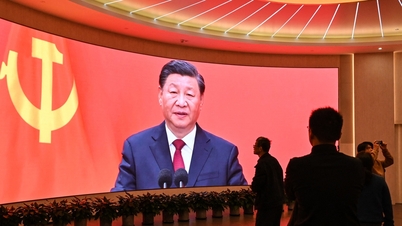




















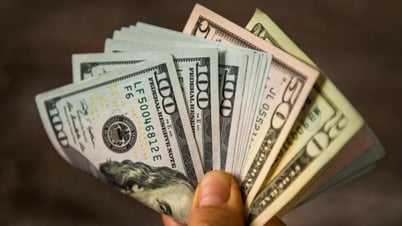

![[Photo] President Luong Cuong receives Prime Minister of the Kingdom of Thailand Paetongtarn Shinawatra](https://vphoto.vietnam.vn/thumb/1200x675/vietnam/resource/IMAGE/2025/5/16/52c73b27198a4e12bd6a903d1c218846)
















































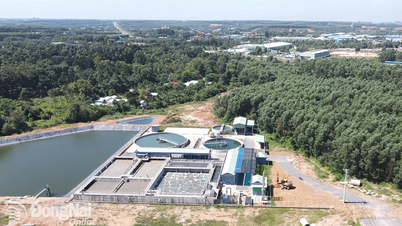

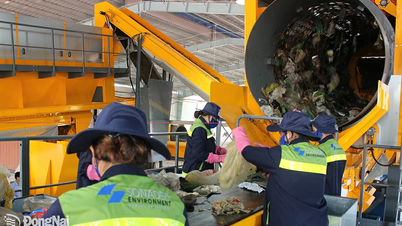










Comment (0)